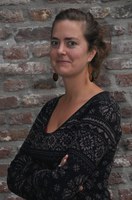Political remittances: Migration, social transformation and revolution (qualitative)
(ER 9a; University of Oxford)
This study investigates the political impacts of emigration and, particularly, the circumstances under which (semi-) permanent and circular forms of migration can foster incremental or revolutionary transformations towards political change in sending states. This fills an important gap in the migration and development debate, which is focused on socio-economic impacts on the micro- and meso-level. The transformational political potential of migration is ambiguous. This research project aims to set an agenda for more in-depth, holistic research on the relationship between migration and political change. The European policy discourse on migration and development has affected the academic analysis on this relationship. Almost invariably, the hypotheses on the link between migration and political change that are being tested are limited to whether migrants’ transnational engagement contributes to democratization. Yet the operationalization of ‘political change’ as ‘democratization’ fails to capture the different temporalities, dimensions and directions of political change. This research project is a conceptual, methodological and empirical exploration of the topic. Empirically, it takes the case of Tunisia to illustrate the complexity of political change in relation to mobility and immobility.
Research period: January 2015 – December 2016
Researcher: Marieke van Houte (profile page)
Marieke’s position as a Marie Curie Research Fellow on the qualitative approach to migration and political change within the TRANSMIC project has given her the opportunity to enhance and share her conceptual, methodological and empirical knowledge, build up an international network, and develop her professional skills. In addition to the academic exercise of the project, she contributed to the TRANSMIC network by supporting the PhD fellows with their research design and by teaching a session on qualitative data analysis, including the use of Computer Assisted Qualitative Data Analysis Software. At the University of Oxford, she also developed and taught an 8-week Option Course: ‘Migration, Development and Conflict’, as part of the MSc Migration Studies. Together with her colleague Ali Chaudhary, she organized IMI’s seminar series entitled ‘Migration, Politics and Political Change’, bringing to Oxford renowned scholars on the topic. Last, Marieke has also used her time as a Marie Curie fellow to explore innovative ways to contribute to the public debate on migration, through the use of theatrical and narrative tools, which resulted in an initiative named CONTAINED Project. The result of her efforts are shown in academic and public publications, a list of invited lectures and conference presentations, a range of creative events, and some media coverage. Marieke has now moved to the Netherlands and is currently affiliated to VU University Amsterdam, where she works on developing innovative participatory and narrative tools as a research methodology to study public responses to migration-related change in refugee receiving communities.



